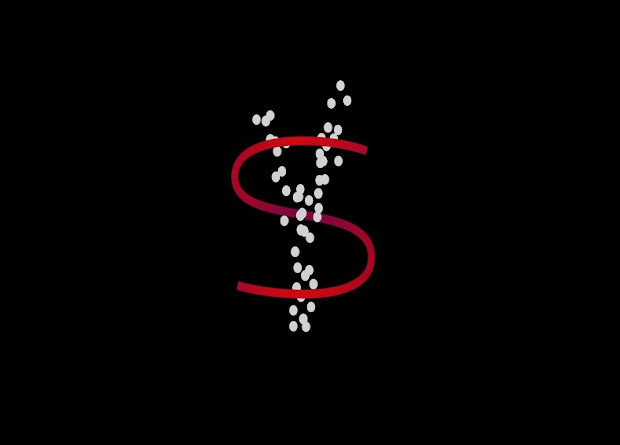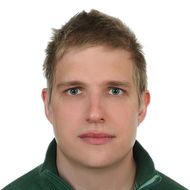Three HSE Researchers Receive Ilya Segalovich Award

Three researchers of the HSE Faculty of Computer Science are among the winners of the 2022 Ilya Segalovich Award: Research Professor Dmitry Vetrov, Associate Professor Alexey Naumov and doctoral student Sergey Samsonov. The award, established by Yandex in 2019, is aimed at supporting young researchers and the scientific community in the field of IT in Russia, Belarus and Kazakhstan.
The winners will receive a cash prize of 1 million roubles. The early-career researchers will also have an opportunity to use grants for Yandex products, including the Toloka crowdsourcing platform for marking up data and the Yandex DataSphere cloud service for organising a full cycle of machine-learning development.
The competition is open to doctoral students, master’s and 4th-year bachelor’s students studying on state-funded programmes at universities or research institutes, as well as the academic supervisors of theses or candidate dissertations with an academic degree and scientific publications. One important condition of participation in the competition is that students continue their studies next year.
The winners are determined by an award committee of six scientists.
The award is given for achievements in the following areas of computer science:
machine learning
computer vision
information retrieval and data analysis
natural language processing and machine translation
speech recognition and synthesis
In addition to researchers from HSE University, this year’s winners include young Skoltech scientists Maxim Velikanov, Peter Mokrov, Taras Khakhulin, and Ruslan Rakhimov, as well as Maxim Kodryan from the Computing Centre of the Academy of Sciences.

Alexey Naumov
‘It is a great honour to receive the Ilya Segalovich Award. I was nominated by the students, which is doubly honourable! The award is given to academic supervisors for achievements in science and the education of a new generation of researchers. I have been actively engaged in research and have been working with students since 2013. Many of my students continue research in Russia and abroad. It's nice to realise that I could have influenced the students’ decisions to connect their life with science, and might have helped them choose their field of research.’
See also:
Start of a Long Journey: Young HSE Scientists Contribute to Learning Theory at COLT 2025
Participation in high-level international events is crucial for the professional development of researchers starting their career in science. It provides an opportunity to exchange ideas, create promising teams, and make important connections. This summer, Denis Ryapolov and Askar Tsyganov, students of the Applied Mathematics and Computer Science programme and staff of the AI and Digital Sciences Institute at the Faculty of Computer Science of HSE University, attended the prestigious international Conference on Learning Theory, COLT 2025, which was held in Lyon, France. In an interview, they shared their experiences and impressions from the trip.
From Neural Networks to Stock Markets: Advancing Computer Science Research at HSE University in Nizhny Novgorod
The International Laboratory of Algorithms and Technologies for Network Analysis (LATNA), established in 2011 at HSE University in Nizhny Novgorod, conducts a wide range of fundamental and applied research, including joint projects with large companies: Sberbank, Yandex, and other leaders of the IT industry. The methods developed by the university's researchers not only enrich science, but also make it possible to improve the work of transport companies and conduct medical and genetic research more successfully. HSE News Service discussed work of the laboratory with its head, Professor Valery Kalyagin.
HSE Team Takes First Place in RuCode Algorithmic Programming Championship
On October 20, 2024, the final round of the RuCode Algorithmic Programming Championship took place, setting a new record in the Russian Book of Records as the ‘Largest Competitive Programming Event.’ The event, held simultaneously across 24 locations, hosted 1,450 participants divided into 500 teams. The overall winner of the senior team division was the M.O.S.C.O.W. team from the HSE Faculty of Computer Science (FCS).
HSE Teachers Awarded Yandex ML Prize
The awards ceremony for the international Yandex ML Prize was held in Moscow. This year, all three winners in the ‘ML Educators’ category were HSE faculty members—Evgeny Sokolov, Associate Professor and Head of the Big Data and Information Retrieval School, Anton Konushin, Associate Professor at the Faculty of Computer Science, and Aleksei Shpilman, Associate Professor at the Department of Informatics at HSE’s St Petersburg School of Physics, Mathematics, and Computer Science.
Researchers at HSE in St Petersburg Develop Superior Machine Learning Model for Determining Text Topics
Topic models are machine learning algorithms designed to analyse large text collections based on their topics. Scientists at HSE Campus in St Petersburg compared five topic models to determine which ones performed better. Two models, including GLDAW developed by the Laboratory for Social and Cognitive Informatics at HSE Campus in St Petersburg, made the lowest number of errors. The paper has been published in PeerJ Computer Science.
HSE and Yandex to Expand Collaboration in Training AI Specialists
Over the next ten years, the partnership between Yandex and the HSE Faculty of Computer Science (FCS) will broaden across three key areas: launching new educational programmes, advancing AI research, and exploring the application of generative neural networks in the educational process. Established by HSE University and Yandex a decade ago, the Faculty of Computer Science has since emerged as a frontrunner in training developers and experts in AI and machine learning, with a total of 3,385 graduates from the faculty over this period.
Two HSE Researchers Receive Yandex ML Prize
Two researchers from the HSE Faculty of Computer Science—Aibek Alanov, Junior Research Fellowat the Centre of Deep Learning and Bayesian Methods, Research Fellow at AIRI; and Pavel Braslavski, Associate Professor, Senior Research Fellow at the Laboratory for Models and Methods of Computational Pragmatics—are among the winners of the 2023Yandex ML Prize (formerly the Ilya Segalovich Award).
Days of Computer Science Held at HSE University
Every spring, HSE University’s Faculty of Computer Science, which this year turns nine years old, traditionally opens its doors and invites everyone to a festival. This time, more than 20 events with over 2,000 registered participants were held between April 8th and 16th as part of the Days of Computer Science.
Light Breezes Improve Moods of Social Media Users
Sergey Smetanin, Research Fellow of the HSE Graduate School of Business, conducted a large-scale analysis to examine the impact of weather conditions on the sentiments expressed by users of the Odnoklassniki (OK) social network. The findings have been published in PeerJ Computer Science. This is the first study of its kind in Russia.
‘Computer Methods of Cognitome Analysis’ Conference to Explore New Perspectives on Memory and Consciousness
On September 1–3, the HSE International Laboratory of Algebraic Topology and Its Applications will host the international conference 'Computer Methods of Cognitome Analysis'. Konstantin Sorokin, Research Assistant at the Laboratory and organiser of the conference, spoke about the main topics of the event and his hope that it will inspire pure mathematicians, physicists and computer scientists to apply their knowledge and intuition to the problems of brain-function mechanisms.


